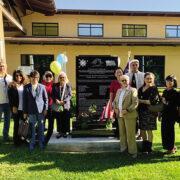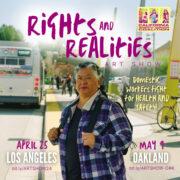
Parts of Nevada are back in business, but the fate of casinos and gaming stations remains in limbo.
Governor Steve Sisolak announced the first phase of reopening the state at the end of April, however, missing was guidance on the hospitality and entertainment industries that draw over 40 million visitors to Las Vegas each year.
The Nevada Gaming Control Board has yet to release a timeline for when gaming operations will resume, but has approved guidelines for reopening casinos across the Silver State.
For nearly two months, the closure of the famous Las Vegas Strip has left thousands of workers without jobs, including many Filipinos who help keep hotels clean and running.
Filipinos, who comprise the largest Asian group in Nevada, over the years have flocked to Clark County for job opportunities, especially in the hotel and gaming sector.
Among the furloughed workers is Regina Wright, a Filipina guest room attendant who has been at Paris Las Vegas for the last 10 years.
While Wright deemed the temporary shuttering of casinos as necessary to protect the health of workers and families, she said the initial weeks were frustrating as she and her colleagues were not getting clear answers from hotel management about pay and other benefits that would be extended during the furlough period.
“I am so worried about where we’re going to get our money to pay for bills because we’re not working,” Wright told the Asian Journal. “At the same time, money from unemployment has been delayed.”
Another worker Kim, who declined to give her last name, has been a cocktail server at Flamingo Hotel and Casino for 21 years. She said that her supervisors also recommended filing for unemployment insurance but she has not heard from them about when she can return to work.
“The company didn’t offer us anything,” Kim told the Asian Journal. “All I know is ‘You got laid off, Saturday is your last day. We’ll call you when we need you.’”
Kim and her husband, who also works on the Strip and was furloughed, have been staying at home, but mortgage and utility bills continue to pile up.
“It’s been really depressing and it’s stressing us out because we have no income coming in, but the bills are still there,” she said. “We don’t even know what we’re supposed to do next… I have to take care of my family. Nobody knows when this city is going to reopen so it’s kind of scary for everybody.”
Caesars Entertainment, which has eight properties in the city including Paris and Flamingo, since then announced that it would continue paying employees through June 30 and has set up a program funded by executives to offer assistance to the hardest-hit employees.
This week, the company said it would reopen its hotels in phases before the end of May based on demand and capacity, and would implement safety measures in line with recommendations from health agencies.
“How companies have treated their workers has been really shameful. Of course, people feel betrayed,” Culinary Union representative Bethany Khan told the Asian Journal. “The system is overrun and checks haven’t come in from the government so people are struggling.”
Close to 419,000 Nevadans have filed for unemployment since March, according to the U.S. Department of Labor. Of that number, about 40% are food and service industry workers, the Los Angeles Times reported.
Hundreds of members of the Culinary Workers Union Local 226 & Bartenders Union Local 165 — which represents 60,000 workers in Las Vegas and Reno — held a car caravan rally along the Strip on Tuesday night, May 12 to demand that more casino companies be transparent about reopening plans that include the safety of workers and tourists.
“Nevada has a chance to be a leader in the hospitality industry,” said Geoconda Argüello-Kline, secretary-treasurer for the Culinary Union. “If casino companies will not release their plans and be transparent before reopening how can customers and workers know they will be safe?”
The union has its own set of public health guidelines for gaming companies to follow, such as screening workers and guests on entry, providing adequate protection, and enhanced cleaning. Members called on the state Gaming Commission to incorporate the union’s guidelines when evaluating casino companies’ individual plans.
Representatives from the Culinary Union said members continue to have their jobs protected after the shutdown is over so they don’t have to reapply and they will have the same pay rate and benefits.
Already, several companies have released their new rules, including MGM Resorts International, which operates 10 properties along or around the Strip.
In a seven-point safety proposal, the resort giant said it would implement employee-screening measures like temperature checks and training on wearing personal protective equipment (PPE) and other sanitization measures.
On the guest side, expect contactless check-in and keyless access to rooms, handwashing stations in prominent areas, and the requirement to wear masks in all public areas. Buffet-style food service will be suspended, and instead, employees will be required to serve guests. On gaming floors, slot machines will be placed 6 feet apart, and “guests will be asked not to stand beside or behind players.”
The first phase of the state’s reopening plan kicked off last week, allowing restaurants to have the dine-in option once again, retail locations to permit shoppers inside at half capacity, and nail and hair salons and barbershops to take customers by appointment.
Some restaurants across Clark County have implemented measures, such as only allowing 50% capacity, requiring reservations beforehand, and putting Plexiglas to create separation between tables. At salons, some owners have reported spacing chairs six-feet apart and constant sanitization. Retail stores are encouraged to continue curbside pickup methods to prevent crowding.
Phase 1 does not cover nightclubs and taverns that don’t have a license to serve food; gyms and fitness facilities; spas, tanning salons, massage studios and tattoo parlors; entertainment and recreational venues, such as bowling alleys, movie theaters, sporting event venues and arcades.






